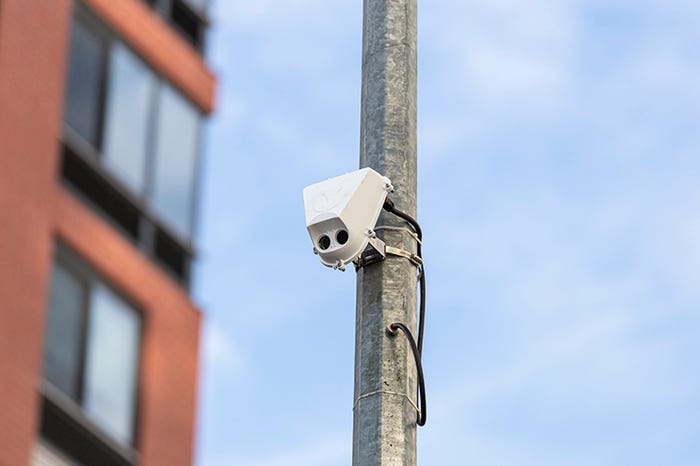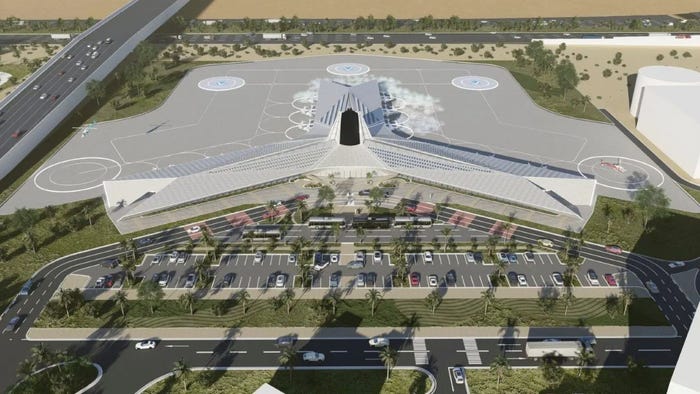Drones Become Key to New York City’s Smart City Test ProgramDrones Become Key to New York City’s Smart City Test Program
The program’s initial phase includes inspection drones and air quality monitors to drive sustainability

The New York City Office of Technology and Innovation (OTI) has launched a testbed program to pilot emerging smart city technologies.
Under the program, the city will be able to test as many as eight projects per year before committing to full-scale deployment.
The initial round of projects includes several drone technologies to drive sustainability in the city, including using drones for building inspections and to identify areas where greenhouse gas emissions can be reduced.
The project will combine deep learning and computer vision with thermal imaging, through-wall radar, UAV/drone technology, and robot localization and mapping to identify defects in building exteriors. Using the data collected from these drones, building managers and city planners can then retrofit buildings to reduce emission losses.
As part of the initial round of projects, OTI is also collaborating with the NYC Department of Health and Mental Hygiene, and private partners, on air quality improvement devices to “reduce particulate matter”.
These devices will be deployed to measure real-time air quality and the efficacy of air quality improvement devices.
Finally, OTI is also working with the Department of Transportation on a street safety project using computer vision to measure transportation trends. Under the pilot, sensors will be deployed at 12 locations, collecting data on traffic and pedestrian movement to inform future street designs.

A street activity sensor mounted on a street light pole along Flushing Avenue in Brooklyn Credit: NYC DOT
“With the launch of the NYC Smart City Testbed, New York City has a new tool to keep up with major advances in urban technology,” said Paul Rothman, director of smart cities and IoT at OTI. “The Testbed will enable industry and academia to more easily get their products, services, or research ideas in front of the city’s relevant stakeholders to demonstrate their capabilities and understand how to adapt them to New York City.
“By piloting emerging technologies, the city can make more informed decisions about which technologies are best equipped to address our challenges as well as how to implement them with New Yorkers in mind.”
Project applications will be accepted on a rolling basis, with two selected each quarter to run for six to nine months. During the pilots program, companies will receive feedback from city agencies and members of the public to determine the success of their technology.
About the Author
You May Also Like






